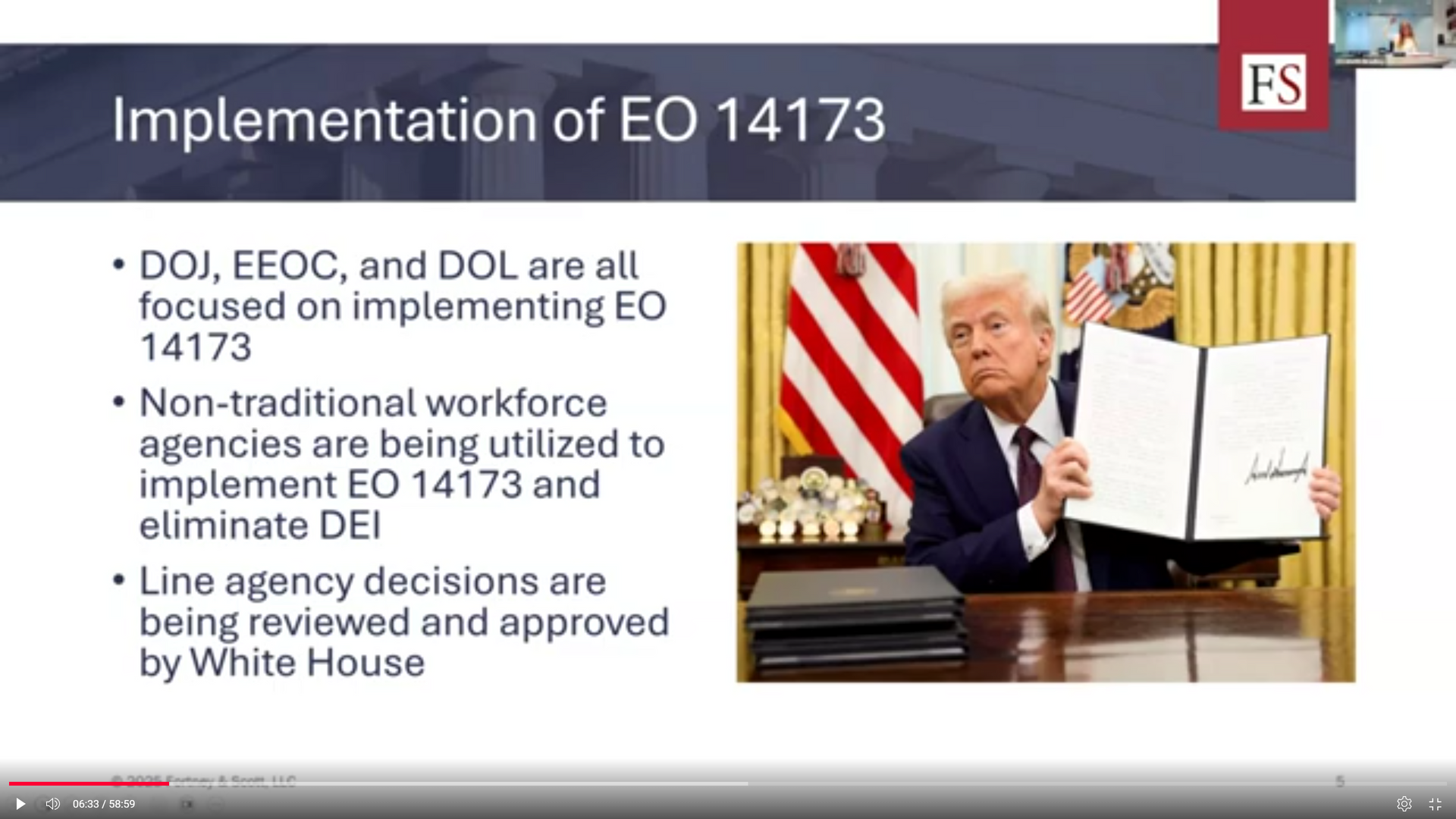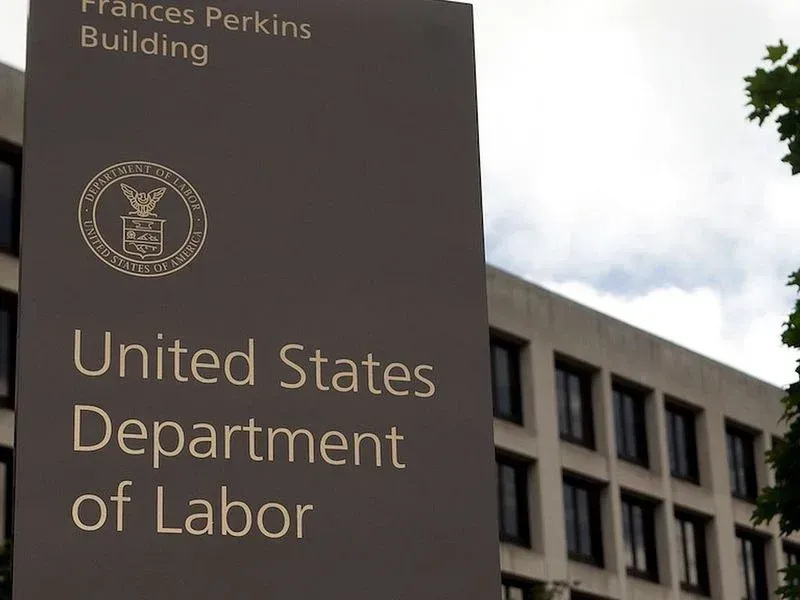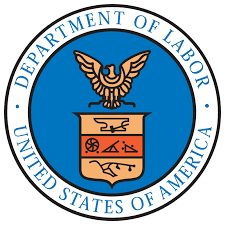OFCCP Issues FAQs for “Campus-Like Settings”
The Department of Labor’s Office of Federal Contract Compliance Programs (“OFCCP”) provided guidance on how an “establishment” should be determined in a campus-like setting, such as a higher education institution or an office park.
Understanding what constitutes an “establishment” is the cornerstone of federal contractors’ EEO and affirmative action compliance obligations. Federal contractors, generally, are required to develop Affirmative Action Plans (“AAPs”) for each “establishment.” AAPs are proactive tools that monitor most personnel activity ( e.g. , hiring, promotions, compensation and terminations) to determine areas of potential discrimination and areas in which additional diversity efforts need to be focused. OFCCP conducts compliance evaluations and related enforcement activity based on individual “establishments” by reviewing the AAP and related supporting materials. When multiple buildings in a campus-like setting are combined in a single AAP, contractors risk including a larger number of dissimilar employees into a single AAP. This could reduce the effectiveness of the proactive analyses as well as create additional challenges during OFCCP audits.
Key Takeaways : Federal contractors with campus-like settings, including clustered office buildings and higher education campuses, should evaluate whether their AAP structures comport with the factors included in OFCCP’s guidance to minimize the risk of a challenge to the AAP structure and coverage by OFCCP. In particular, higher education federal contractors need to carefully evaluate whether to use a campus-wide approach for developing an AAP, or whether grouping buildings by departments or other related organizational units or functions is appropriate for AAPs. The development of AAPs is a critical component in a federal contractor’s compliance strategy, and federal contractors should secure legal advice on how their AAPs should be structured based on their specific facts and with appropriate consideration of OFCCP’s new guidance.
Additional Information for Higher Education Federal Contractors : OFCCP, in particular, focuses on assessing compliance by higher education federal contractors which began during the Obama Administration. Many reviews of the higher education contractors still are pending. Why? Because OFCCP and the higher education community cannot agree on a fundamental compliance point – the definition of an “establishment.”
“Establishment” is not defined in OFCCP’s regulations. Case law, OFCCP’s compliance manual, trial testimony of a Regional Director, and the agency’s long-standing practice, however, define an “establishment” as a brick and mortar building. Curiously, OFCCP has repeatedly, but not consistently, taken a different position when it comes to higher education contractors. According to OFCCP practice, typically an “establishment” in the context of a college or university is the entire campus.
Last Spring, OFCCP Director Craig Leen promised to issue technical assistance guidance (TAG) for colleges and universities covering a range of issues, including the scope of a higher education AAP. It appears, OFCCP has abandoned – or at least delayed – its promise of a comprehensive TAG in favor of FAQs for Campus-Like Settings generally. These FAQs apply more broadly than just higher education. The FAQs apply to any contractor with multiple buildings in a campus-type setting.
While the sub-regulatory guidance provided in the FAQs is generally phrased in the permissive – “OFCCP may consider” or “Contractors may determine,” the guidance sets forth several factors contractors “should” consider when determining whether multiple buildings “should” be in a single AAP ( FAQ 4 ). Such factors include:
- What is the function of the building, and how do the employees in the building interact with employees in other buildings?
- Are employees across different buildings part of the same organizational unit, such as department, division, section, branch, group, job family, or project team?
- Are the hiring, compensation, and other personnel decisions handled separately at each building or are those functions consolidated across the entire contractor or across multiple buildings on one campus?
- Does each building handle its own recruitment or is that function consolidated across multiple buildings?
- Do the buildings recruit from the same labor market or recruiting area?
- To what extent are other human resources and Equal Employment Opportunity compliance functions operationally distinct for each building or group of buildings?
- To what extent do certain employees perform work functions across various buildings?
OFCCP does not cite to any authority, legal or otherwise, to support these factors or the definition of an “establishment” as a group of buildings located in the same area. These FAQs are sub-regulatory guidance and, as such, it does not bind the contractor community or OFCCP. The structure and scope of an AAP is a critically important compliance decision. Contractors should certainly consider the various options available for structuring their AAPs – grouping multiple buildings in a single AAP per these FAQs; an AAP per building based on OFCCP’s long standing practice; or a Functional AAP per the regulations ( 41 CFR 60-2.1(d)(4) ). Specifically, in our experience involving higher education institutions, there have been limited instances in which OFCCP has accepted AAPs based on sub-campus groupings by departments or functions. OFCCP, however, generally expects that a single, campus-wide AAP will be prepared for colleges and universities, notwithstanding the lack of specific legal authority compelling such an AAP structure.
Please contact your FortneyScott attorney or email us at info@fortneyscott.com for more information about how the new OFCCP guidance applies to your AAP design and related matters.


















